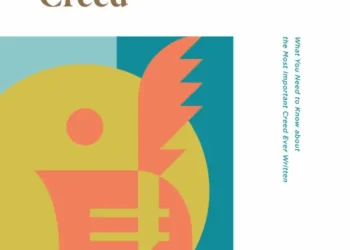ACI Prensa Staff, Aug 14, 2025 /
15:57 pm
Maksym Ryabukha, the Greek Catholic bishop of the Exarchate of Donetsk in Ukraine, describes himself as a “bishop on wheels” because he frequently travels to visit parishes and accompany his faithful in the midst of war. “This allows me to see the depths of human life,” he said.
One of the youngest bishops in the world, the 45-year-old prelate explained in an interview with the pontifical foundation Aid to the Church in Need (ACN) that, before the Russian invasion, there were “more than 80 parishes” in the exarchate in east-Central Ukraine, “but more than half have been closed, occupied, or destroyed. Now we have only 37 active parishes.”
In the occupied zone, he lamented, “the laws of the occupation force forbid any affiliation with the Catholic Church, either Greek-Catholic or Latin rite, and it is very difficult to provide any sort of ministry there. My exarchate no longer has any priests in these territories. All our churches have been destroyed, or they are closed and people are not allowed to attend them.”
Since the beginning of Russia’s full-scale invasion of Ukraine, the Office of the United Nations High Commissioner for Human Rights (OHCHR) has reported the deaths of at least 13,883 civilians, including 726 children, and the injured number 35,548.
Regarding the current situation, Ryabukha noted that it is becoming “increasingly worse. The drones make every place unsafe, including for civilians. Along the front line, some 18 miles from my territory, people leave their homes at night, in fear of being crushed to death, and go to sleep in the countryside by the lakes.”
“One boy told me that he was sleeping with his entire family when they heard a bomb drawing closer and realized that it could land right on their house,” the bishop said. “In just a few seconds, they leapt out of bed and left the house, and soon, the whole building was turned into a crater. An experience like that can crush you. It is very destructive.”
The OHCHR reported on Aug. 13 that a record number of civilians were killed and injured in Ukraine in July.
That month, 286 people were killed and 1,388 injured, the highest number of overall casualties since May 2022. Nearly 40% of the casualties were caused by long-range weapons, such as rockets and loitering munitions. On July 31, an attack on Kyiv killed 31 people — including five children — and left 171 injured, most of them in a residential building hit by a rocket.
For Ryabukha, “what hurts most is seeing that the world remains silent while civilian areas are bombed and people are killed. The only thing that gives us hope is that God is stronger than the evil we can find in the world. We look at daily life from the perspective of heaven, because sooner or later, everything will end, and that end is called paradise.”
The prelate also pointed out that “the worst isn’t the bombs. It’s the feeling of being forgotten, feeling alone, or of being of no value to anybody.”
However, even in the occupied territories believers “feel part of one Church: in support; in personal encounters; when they share their dreams and hopes; when they pray together, even though it is very dangerous.”
Despite the difficulties, there is hope in the eparchy: “We have 19 seminarians. This is remarkable!” the bishop said. “It is a large number for us, as we are not a big eparchy. These boys are great … they have a deep experience of Christian life … Before, people generally felt lost … Now, there is clarity: ‘I want to take responsibility for my life, and I want to do this.’”
With the help of ACN, the priests and women religious are receiving psychological training to care for young people who have lost the ability to read, write, or speak due to the trauma of the war. They also support widows and mothers of fallen soldiers and distribute humanitarian aid to people who have lost everything.
“God, through our hands, manages to touch and embrace those people who suffer and bring them a smile, a little joy, a little inner serenity,” Ryabukha affirmed.
This story was first published by ACI Prensa, CNA’s Spanish-language news partner. It has been translated and adapted by CNA.


















